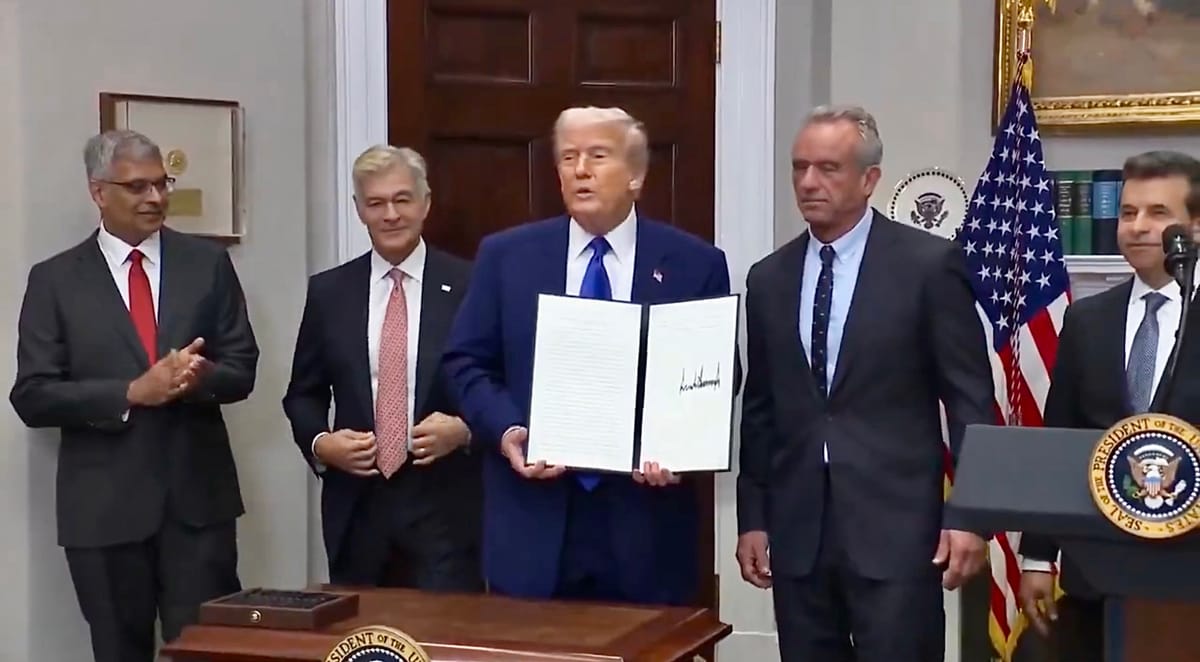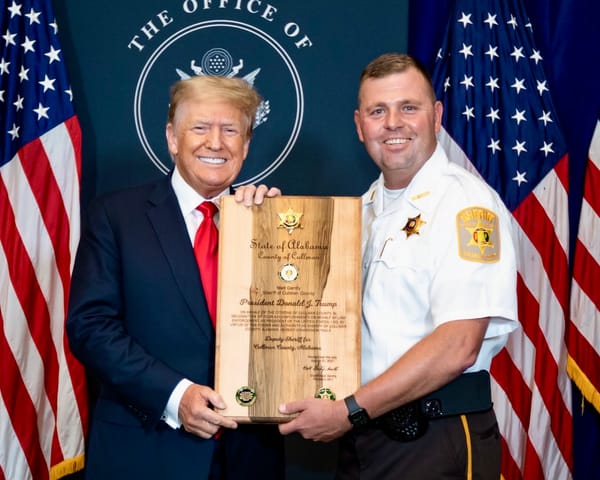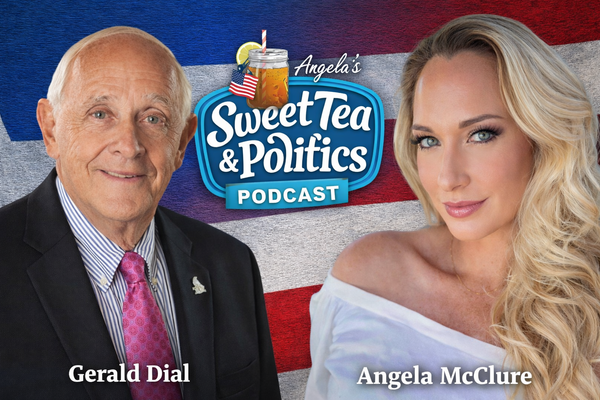Trump Signs Executive Order to Slash Drug Prices for Americans
Using “Most-Favored-Nation” policy targets a system skewed against American patients

President Donald J. Trump signed a new Executive Order (EO) designed to sharply reduce the cost of prescription drugs for American consumers by tying prices to those in other developed nations.
The President signed the EO following a press conference Monday, May 12. Titled Delivering Most-Favored-Nation Prescription Drug Pricing to American Patients, the Order targets the “global freeloading” system, where foreign governments negotiate steep discounts on American-made drugs, relative to what U.S. patients pay.
“The United States has less than five percent of the world’s population and yet funds around three-quarters of global pharmaceutical profits,” the EO states. “This egregious imbalance is orchestrated through a purposeful scheme.”
The President directed federal agencies to pursue most-favored-nation pricing, which would ensure Americans pay no more for prescription drugs than patients in countries with similar economies. Under the current system, U.S. consumers often pay two to three times more for the same medications, even when produced in the same factories. This EO is designed to end this biased system.
The EO outlines several steps, including:
- Negotiation and Enforcement: The Department of Health and Human Services (HHS) will immediately begin working with drugmakers to lower prices to international standards. If negotiations fail, HHS is instructed to begin a rulemaking process to enforce these pricing changes.
- Trade and Competition Measures: The U.S. Trade Representative and the Secretary of Commerce are directed to investigate whether foreign governments are using policies that suppress pharmaceutical prices in a way that harms U.S. innovation or national security. In addition, the Federal Trade Commission and the Department of Justice are tasked with pursuing any anti-competitive practices uncovered.
- Importation and Consumer Access: The Food and Drug Administration (FDA) is instructed to evaluate whether certain prescription drugs can be safely imported from developed nations. If deemed safe, the agency would issue waivers to allow case-by-case imports to drive down domestic prices.
- Direct-to-Consumer Sales: HHS is also instructed to facilitate programs that allow American consumers to purchase drugs directly from manufacturers at the most-favored-nation rate, bypassing intermediaries that often drive up costs.
The administration says these actions will end global freeloading, where countries benefit from U.S.-financed research while paying much less for the resulting drugs. “Americans will no longer be forced to pay almost three times more for the exact same medicines, often made in the exact same factories,” the President stated.
Health and Human Services Secretary Robert F. Kennedy, Jr. praised the Order, saying, “We now have a President who is a man of his word, who has the courage... he can't be bought, unlike most of the politicians in this country — and he is standing here for the American people.”
The EO follows a string of related policies, including Executive Order 14273, Lowering Drug Prices by Once Again Putting Americans First, signed on April 15, 2025, which mandated a full review of anti-competitive practices in the pharmaceutical industry.
Supporters of most-favored nation pricing say it will bring fairness and transparency to a system they feel is skewed against Americans.
Critics of the policy contend it will lead to reduced incentives for drug research and innovation, and could lead to companies withdrawing from some markets.
The full text of the EO is HERE.




